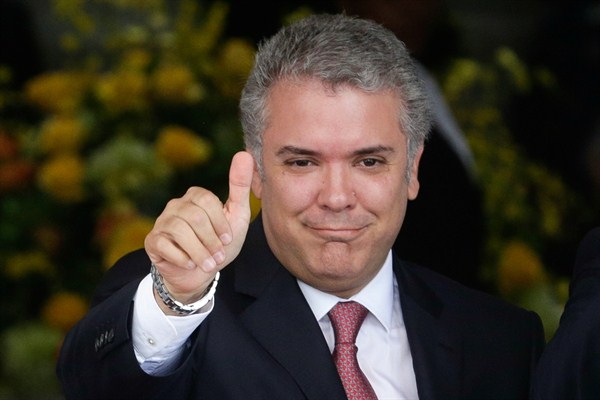Colombia’s young president, Ivan Duque, just passed his 100-day mark in office, and the results so far show that a deeply divided country, after decades of war with guerrilla groups, will remain tough to govern as a fragile peace struggles to take hold. In the years to come, the 42-year-old Duque is sure to face headwinds made even worse by the polarization resulting from years of bitter conflict.
Duque’s approval ratings have collapsed during a period when a new presidency often benefits from open-minded optimism. One pollster, Invamer, recorded an approval rating of just 27 percent this month, down from 54 percent in September.
Colombians were not exactly deluded by hope when they elected Duque in a runoff vote against Gustavo Petro, a committed leftist and former guerrilla. The contrast offered to voters was sharp, with the right-of-center Duque embraced by his conservative mentor, former President Alvaro Uribe, who severely weakened Colombia’s largest guerrilla group, the Marxist Revolutionary Armed Forces of Colombia, or FARC, during his time in office. Uribe then became a fierce critic of the landmark peace agreement with the FARC that was negotiated by his successor, Juan Manuel Santos. That deal sought to bring a definitive end to the half-century-old insurgency, establish a transitional justice system, and absorb the disarmed guerrillas into society. Duque had also been a critic of the agreement, promising to change it. But although his promises were not particularly dramatic, many Colombians thought they concealed grander plans.

